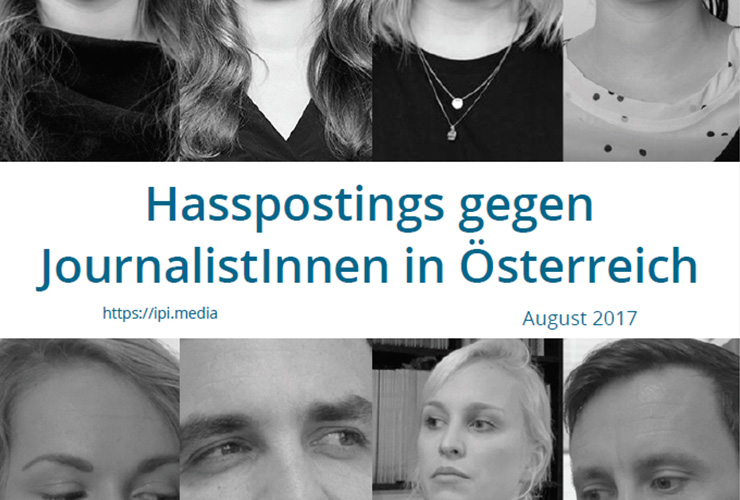Lesen Sie diesen Artikel auf Deutsch.
News content related to politics, immigration and Islam is most likely to trigger online harassment against journalists in Austria, according to a new study released today by the International Press Institute (IPI).
The study examined attacks against journalists in Austria over a four-month period from September to December 2016, coinciding with the campaign period for Austria’s presidential election re-run. IPI researchers monitored social networks – especially Facebook, the dominant platform for political discourse in Austria – and conducted in-depth interviews with media experts and journalists targeted with online abuse.
Released today in both English and German, the study tackles key questions related to the phenomenon of online harassment: What types of online abuse against journalists occur? How and where does the abuse occur? How do individual journalists cope with the harassment, and what effect does it have on their professional and personal lives?
The study found that a high percentage of the harassment took place on Facebook, especially in connection with statements posted by members of the far-right Austrian Freedom Party (FPÖ). Posts by FPÖ leaders targeting specific journalists or media houses for their coverage frequently triggered a wave of insults and verbal abuse by party supporters.
One-hundred-fifteen instances of online abuse were collected from various FPÖ-related pages. Ninety-three percent of these instances were classifiable as “verbal abuse”, while seven percent rose to the level of “threats of violence”.
Journalists interviewed for the study stated that the abuse they experienced did not lead to self-censorship. Some of them did, however, admit that the attacks take an emotional tool and they said they find the attacks to be extraordinarily invasive, particularly during intense periods of harassment.
The study also highlighted the fact that attacks on women journalists target not only the journalist’s work, but also her gender, through sexist verbal abuse. This pattern has been observed in other countries, including Turkey and Hungary, where IPI has carried out similar studies.
Recommendations included in the study for protecting journalists in the newsroom include offering psychological support, raising awareness internally and ensuring that journalists know to whom they can turn if they are targeted in abusive posts.
Download Report
[content_boxes settings_lvl=”child” layout=”clean-horizontal” columns=”1″ icon_align=”left” title_size=”18″ title_color=”” body_color=”” backgroundcolor=”#dcdadb” icon_circle=”” icon_circle_radius=”” iconcolor=”#dcdadb” circlecolor=”#dcdadb” circlebordercolor=”#dcdadb” circlebordersize=”” outercirclebordercolor=”” outercirclebordersize=”” icon_size=”” icon_hover_type=”” hover_accent_color=”” link_type=”” link_area=”” link_target=”” animation_delay=”” animation_offset=”” animation_type=”0″ animation_direction=”down” animation_speed=”0.1″ margin_top=”0″ margin_bottom=”0″ class=”” id=””][content_box title=”” icon=”” backgroundcolor=”#dcdadb” iconcolor=”#000000″ circlecolor=”#dcdadb” circlebordercolor=”” circlebordersize=”” outercirclebordercolor=”” outercirclebordersize=”” iconrotate=”” iconspin=”no” image=”” image_width=”35″ image_height=”35″ link=”” linktext=”” link_target=”_self” animation_type=”0″ animation_direction=”down” animation_speed=”0.1″]
Press freedom is under threat. But you can help.
To Our Readers: We need independent news and information more than ever, but journalists around the globe are increasingly under attack for doing their jobs. IPI works every day to support independent journalism and the free flow of news. But we need your help. By becoming an IPI member or supporter, you strengthen our mission to protect everyone’s right to be informed.
» Become an IPI member
» Support IPI’s work
» Subscribe to our weekly newsletter
[/content_box][/content_boxes]
